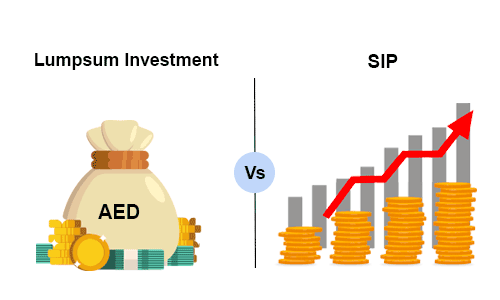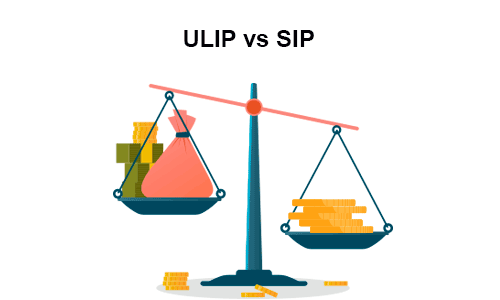Benefits of Mutual Funds – Why Invest in Mutual Funds?
Mutual funds are among the most affordable and accessible investment instruments in the financial market. They can help you meet your financial objectives, all while posing a low risk compared to other financial instruments. The primary benefits of investing in mutual funds include accessibility, professional management, investment diversification, and so forth.
This article throws light on what are the benefits of investing in mutual funds and how the power of compounding can help in multiplying mutual fund investments.
Table of Content
What are Mutual Funds?
Before diving into the benefits of investing in mutual funds, let’s quickly go through mutual funds’ fundamental concept. A mutual fund is a collection of funds from a number of individuals that an investment management company uses to buy securities, bonds, or other types of financial assets.
The combined financial clout of these investors enables them to invest in various markets, industries, and areas. You can easily acquire a part of each investment made by the mutual fund when you make an investment in it. These open-ended investments are managed by asset management companies (AMCs), with the funds being managed by professionals called fund managers.
This professional fund management allows investors to increase their income through their holdings. The outcome of the securities that a mutual fund plan chooses to purchase determines the capital gain. The state of the market also affects the worth of the particular investment acquired.
Investors are subsequently given a share of the income or gain from these investments. After deducting specific costs, the distribution is made by figuring out the scheme's net asset value.
Benefits of Mutual Funds
Given below are the benefit of investing in mutual funds:
1. Professional Management
One of the major benefits of mutual funds is that they are managed by experts. So if an amateur investor is clueless about where to invest or how to invest, the fund managers come into the picture. They manage and operate mutual funds by gathering money from investors with common financial objectives and investing the money in securities.
The fund manager keeps a watch on the best-performing securities and facilitates the distribution of the risk involved in investment by diversifying the investor’s portfolio. The only job an investor is left to do here is investing.
2. Liquidity
Mutual funds are vouched for their liquidity, with investors having the option to redeem any amount of units in case any emergency arises. They can place a request to have their funds converted into cash at any point in time. This money is generally credited to your bank account within 1 to 3 business days. Furthermore, if you sell off your mutual funds, the money earned will be credited to your account.
3. Flexible
Another benefit of investing in mutual funds is their remarkable flexibility. To forecast market peaks and troughs is highly challenging. However, you can overcome this challenge and enjoy long-term investing benefits by investing regularly and staying invested for a prolonged period.
A systematic investment plan (SIP) is an excellent outlet here, as it helps investors routinely save with a lesser sum of money by requiring them to make equal monthly contributions to a mutual fund.
On the one hand, mutual funds can have regular payments transferred directly into a bank account, and on the other, money can be deducted directly from your bank accounts and invested immediately in the mutual fund. This flexibility is a significant attraction for both new and seasoned investors.
4. Transparency
Transparency is one of the reasons why mutual funds are the most sought-after investment options. Numerous rating bodies and newspapers evaluate the performance of mutual funds, making it simple for you to compare one fund with another.
As a unit holder, you will get regular information about how your investment is performing as well as details regarding the holdings of the fund and the outlook and approach of the fund manager.
5. Affordable
Several investors with similar financial objectives contribute money to a mutual fund, which is subsequently utilised to buy securities. However, as these funds are invested in assets, one can reduce transaction and other costs. The savings are transferred to the investors in the form of lower mutual fund investment expenses. Additionally, the price for the Asset Management Service fee is low and split equally among all of the fund's investors.
6. Diversification
Another key benefit of investing in mutual funds is the availability of a wide range of options and the consequent diversification. A mutual fund allows you to purchase a portion of a pool of investments by combining your funds with those of other participants. As a result, when investing in mutual funds, you can purchase one fund and instantly gain access to hundreds of individual equities or bonds.
Investing in mutual funds offers a more diverse portfolio than purchasing individual stocks or bonds, which lowers the overall risk and instability of your portfolio. Owning a range of investments through mutual funds can help mitigate the effects of poor performers while maximising the income potential of the remainder, as not all investments operate well at the same time.
7. Higher Returns
Even though the returns are not assured and mainly depend on the market performance, mutual funds tend to offer a higher return on investment in the long run, especially if you have invested in equity funds. Debt mutual funds, too, offer a higher return on investment when compared to deposits in bank accounts.
8. Convenience
Convenience is another benefit of investing in mutual funds. They provide you diverse investment options that meet your financial objectives without requiring you to monitor the market throughout the day. You can trade your mutual funds on working days at your convenience.
Power of Compounding and Mutual Funds
The power of compounding refers to the rapid growth of wealth via the accumulation of interest on interest. Here, the interest generated on the principal amount is reinvested so that you can earn interest over the interest. Compounding has many benefits, one of which is the ability to quickly increase the investment's value.
Up until the time you keep your money invested, a chain reaction or multiplying of investment takes place as it reinvests your interest or profit from the initial investment, which helps you gain on the interest earned as well.
The following are the ways you can benefit from the power of compounding -
- By starting your investing as early as you, you would be able to build a strong financial foundation
- Make sure to invest regularly and with discipline, as disciplined contributions help in wealth generation
With all said, it is essential to keep your financial objectives clear. Only when investments are permitted to increase at their own rate will the power of compounding be seen.
Key Takeaways
- A mutual fund is a collection of funds from several individuals that an investment management company uses to buy securities, bonds, or other financial assets. These combined funds can be invested in various markets, industries, and areas. You can get a part of each investment made by the mutual fund when you invest in it.
- One of the major benefits of mutual funds is that the experts manage them. For new investors who are not clear about where to invest or how to invest, the presence of a fund manager can be beneficial as they manage and operate mutual funds by gathering money from investors with common financial objectives with their financial expertise.
- Flexibility is another benefit of investing in mutual funds. By continuously investing and staying invested, you can make significant gains despite the fluctuations in the market. A systematic investment plan (SIP), for instance, enables investors to routinely save money with a lesser sum by requiring them to make equal monthly contributions to a mutual fund.
- One more major benefit of investing in mutual funds is the range of options available as well as diversification. With mutual funds making investments in various financial instruments, you can purchase one fund and instantly gain access to hundreds of individual equities or bonds. This can lead to a reduction of risk.
- The power of compounding is another benefit of investing in mutual funds. Here, interest earned on the principal is reinvested, which helps you in earning interest over the accrued interest and have large gains over the years.
Policybazaar UAE – Helping you navigate the wilderness of the insurance world!

More From Investment
- Recents Articles
- Popular Articles













.jpg)











.jpg)
.jpg)









